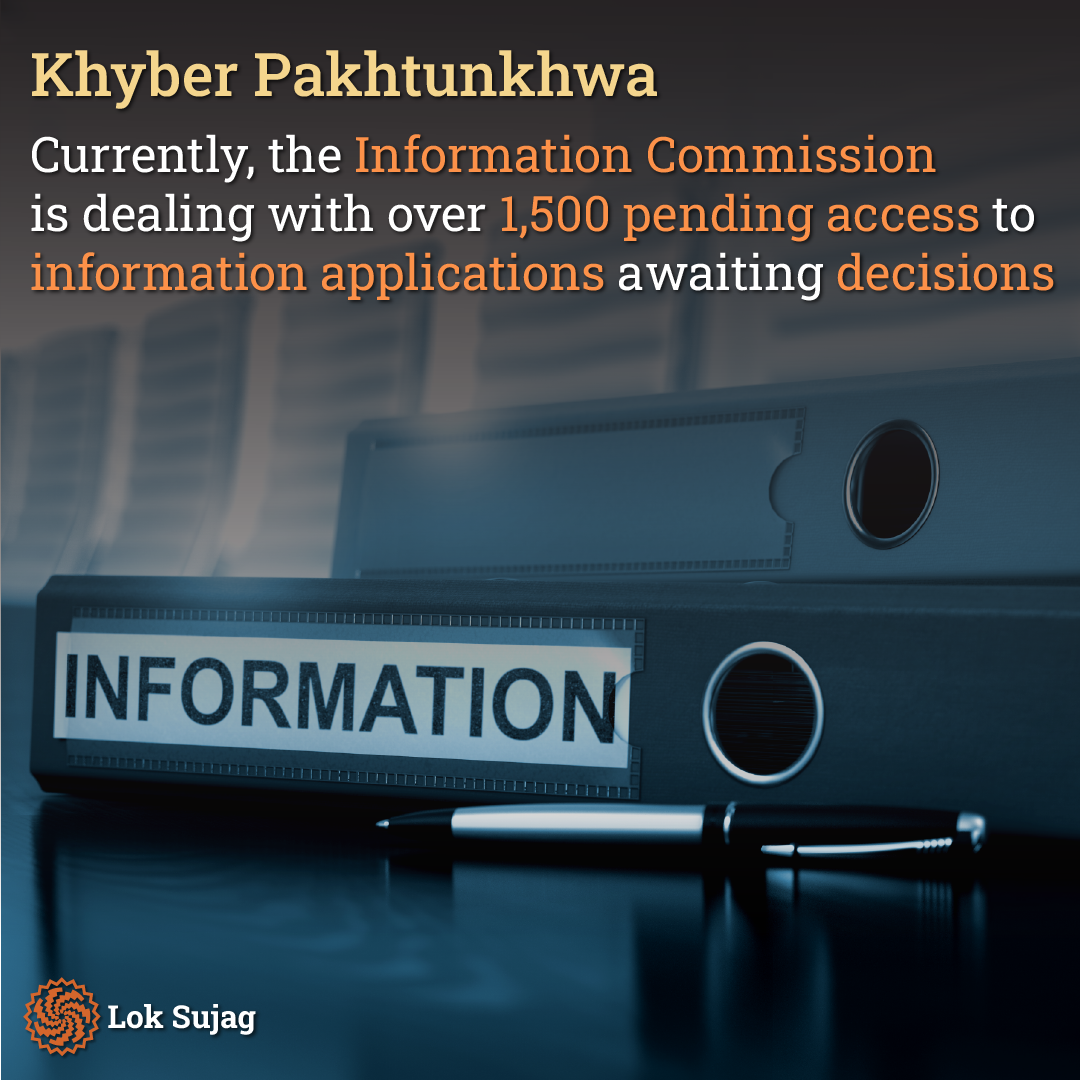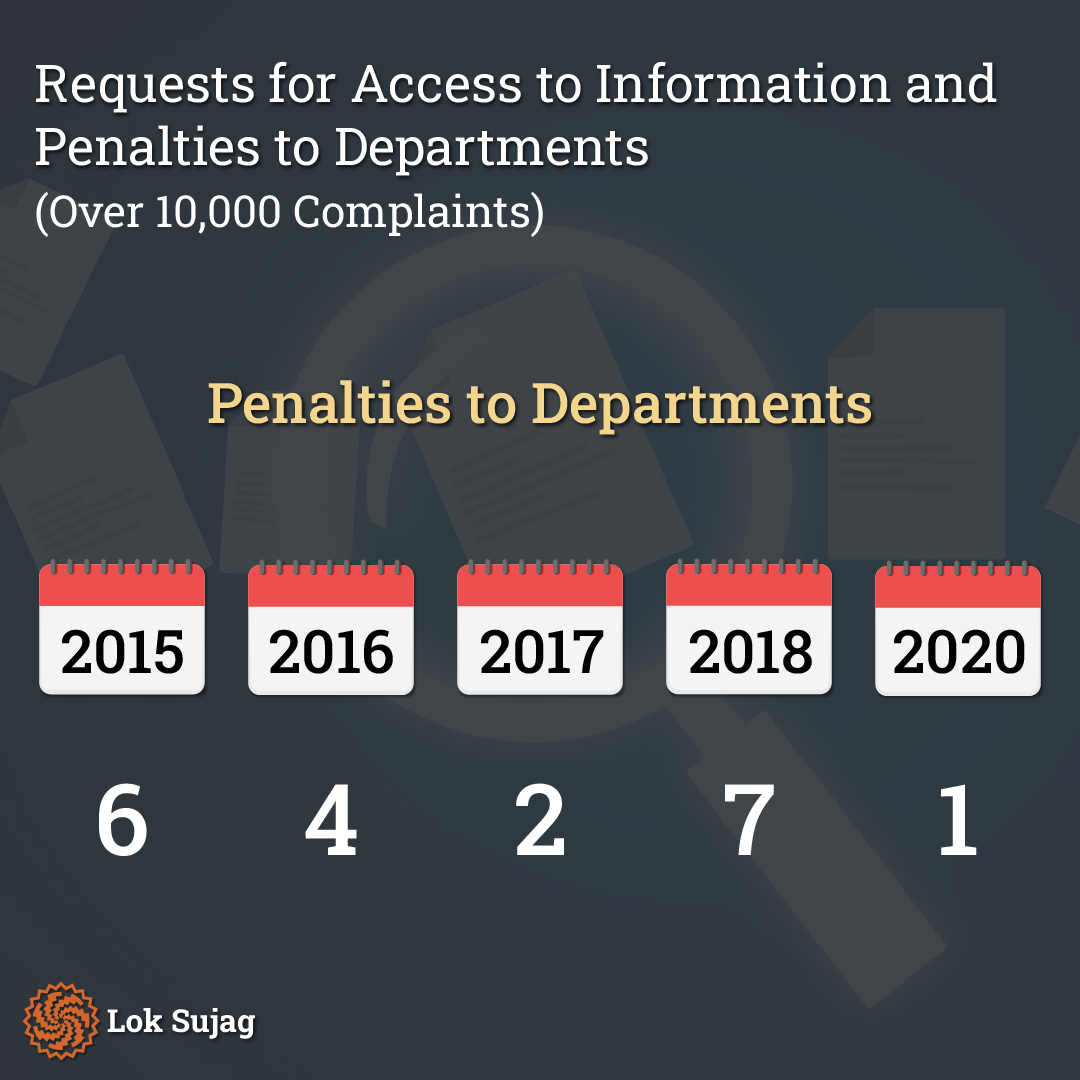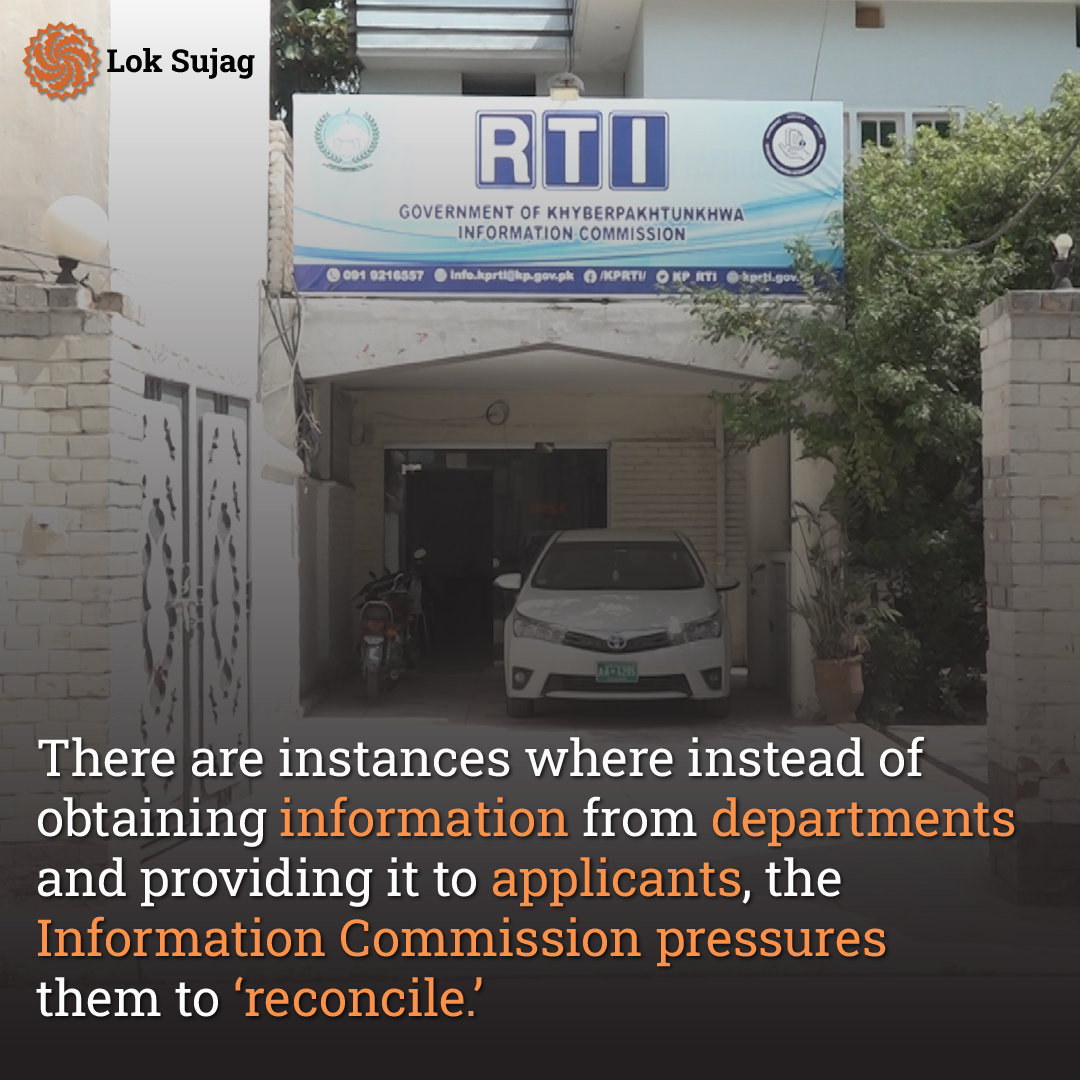The effectiveness of Khyber Pakhtunkhwa’s Right to Information Act is dwindling as time goes on. In 2013 the assembly passed the Khyber Pakhtunkhwa Right to Information (RTI) Act of 2013. Its purpose was to hold all government institutions in the province accountable to the public and allow citizens to access information under Article 19A of the Constitution. However, its proper implementation has yet to be achieved.
In 2013, a law was made and the information commission was established within 120 days under section 24 of the Act.
Getting information under this law, except for journalists, has become challenging for ordinary citizens.
Aziz Boniri, a senior journalist based in Peshawar, highlights a significant difference between information obtained through RTI and personal sources. Many government agencies provide inaccurate responses to RTI applications

“Since the enactment of this law, I’ve submitted numerous requests to various government agencies. Unfortunately, the response rate has been disappointingly low. Most government departments fail to respond within ten days, forcing me to file complaints with the Information Commission. However, the Commission seems to acknowledge the complaints without addressing them. There have even been instances where departments are pressured to ‘settle’ instead of furnishing information to the petitioner.”
Aziz shares that he applied six months ago to acquire specific information about the Bank of Khyber, but he’s not received any response. He also discloses that he’s feeling pressured by the Information Commission to withdraw his application.
“If it takes six months for a journalist to obtain information, what chance does an ordinary citizen have? The Information Commission is an additional burden on the provincial treasury.

As per the provincial Act governing information access, if an institution fails to provide information within ten days upon a citizen’s request, the citizen can lodge a complaint with the Information Commission against that department. The Information Commission is responsible for addressing the complaint within 60 days by gathering information from the relevant body and sharing it with the citizen. The Commission also has the authority to impose penalties on the department in accordance with the law.
A common complaint in the province is that certain departments continuously hide information, yet no action is taken against them.
According to information provided by the Information Commission through an RTI application, 24,548 citizens have applied for information since 2013. Out of these applicants, 13,398 have received the requested information. The Information Commission has received 10,427 complaints, and 8,813 of these have been resolved, while 1,568 are still pending.
Of the 10,000 complaints received, only 20 department heads or PIOs have faced fines. Most complaint hearings took place in 2015, resulting in six fines. Additionally, seven departments were fined in 2018, four in 2016, two in 2017, and one in 2020 due to failure to provide information.

Regarding this matter, Shabbir Hussain Gagiani, a legal expert, suggests that the RTI law itself is good. However, it is the responsibility of the government and the Information Commission to educate the public on how to access it. Unfortunately, practical steps have not been taken in the past ten years.
He also points out several shortcomings in the Act. For example, if the concerned department ignores a petitioner’s request or if the action taken doesn’t address the petitioner’s grievance, there is no platform for appeal. The common practice of repeatedly rescheduling hearings persists.
“The process of obtaining information under this law is quite complex. A simple and unified process should be available at the district level in all institutions to make such laws effective. The convoluted procedures and frequent rescheduling of hearings discourage ordinary people from approaching the courts or even filing an RTI application to access information.”

Not only that, but the implementation of this law needs to be improved. While thousands of people seeking information from different departments await responses, there are already hundreds of pending complaints due to an insufficient number of Information Commission commissioners.
Information Commission Deputy Director of Communication Syed Saadat Jahan mentions that the department currently has more than 1500 pending applications awaiting decisions due to the lack of a sufficient number of commissioners.
The appointment of commissioners is carried out through the Information Department with the Chief Minister’s approval. Despite sending multiple letters and reminders to the Information Department, the appointment of commissioners has yet to be executed, resulting in ongoing challenges.
Also Read

Restoration of local governments in Punjab: Justice delayed is justice denied
When we brought this matter to the attention of the Caretaker Information Minister, Barrister Feroze Jamal Shah, he informed us that a committee led by him has convened to decide on the appointment of a Commissioner. Once the selections have been finalised, the names will be submitted to the Election Commission. Subsequently, the chief minister will issue a declaration to officially appoint the commissioner.
Barrister Feroze Jamal added that the caretaker government aims to ensure transparency, and the RTI allows individuals to seek answers and information from various departments directly. The appointment of the Information Commission’s Commissioner is crucial to establish accountability within the department, a goal that has been pursued.
It’s too early to determine how long it will take for the Election Commission to grant permission and for the caretaker Chief Minister to approve the name. However, merely appointing commissioners won’t solve the problem. To address this, simplifying the procedure and ensuring accountability across all institutions are essential. Moreover, creating awareness among the people is crucial so they can fully benefit from the advantages of this law.
Published on 15 Aug 2023




















